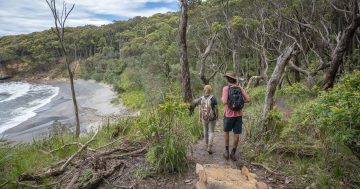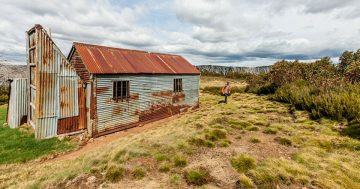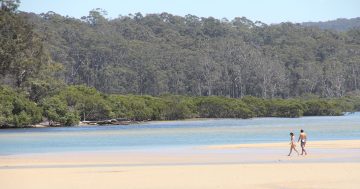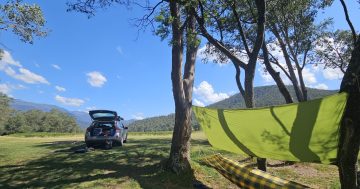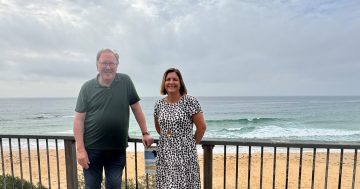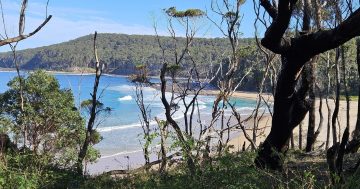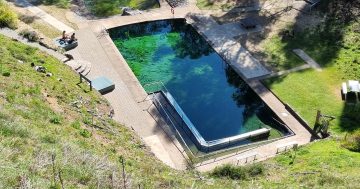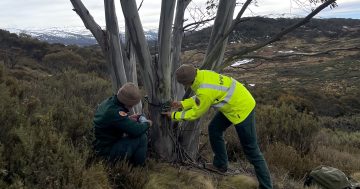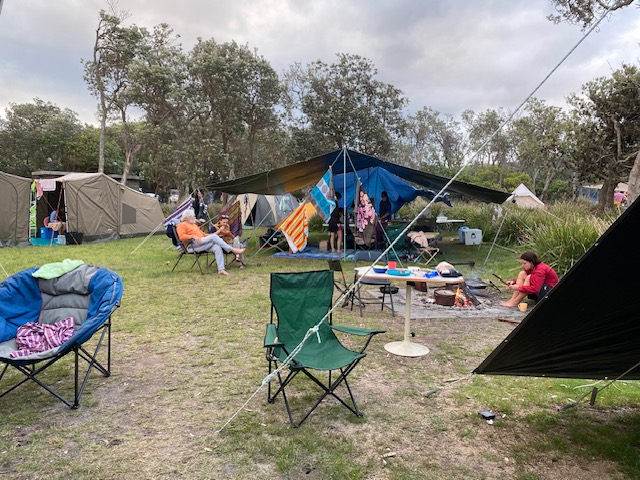
Sam Storey’s family has camped at Picnic Point in Mimosa Rocks National Park for around 35 years. Photo: Supplied.
NSW National Parks and Wildlife Services’ (NPWS) plan to lease camping sites to commercial operators has no valid justification, lacks detail, was done without consultation, and is inequitable in giving businesses priority access to a public resource.
That’s the view of Canberra’s Sam Storey whose family has been camping at Picnic Point in Mimosa Rocks National Park for some 35 years.
Picnic Point is one of 23 campgrounds in 16 national parks where NPWS will offer licences for businesses to run supported camping. That can include tents, caravans, or camper trailers, as well as setup, equipment, and food services for a three-year trial. Businesses can book sites 12 months in advance. Members of the public can only book sites six months in advance.
It is another blow for campers after NPWS proposed a new camping fee structure earlier this year.
Mr Storey said the trial seemed to have come out of nowhere. “There was no consultation process,” he said. “It is concerning.”
NPWS said the move was intended to increase accessibility. It cited research published by Instinct and Reason in 2023 that showed 62 per cent of adults in NSW were open to camping including 10 per cent who had never camped before but were keen to try.
“NPWS has developed the trial in response to growing demand from people interested in camping, but who lack the necessary gear and experience,” an NPWS spokesperson said.
“People haven’t got gear so that is NPWS’ accessibility concern,” Mr Storey asked. “That is their justification for commercialisation, 10 per cent of 62 per cent? There is no discussion of what they mean by accessibility.”
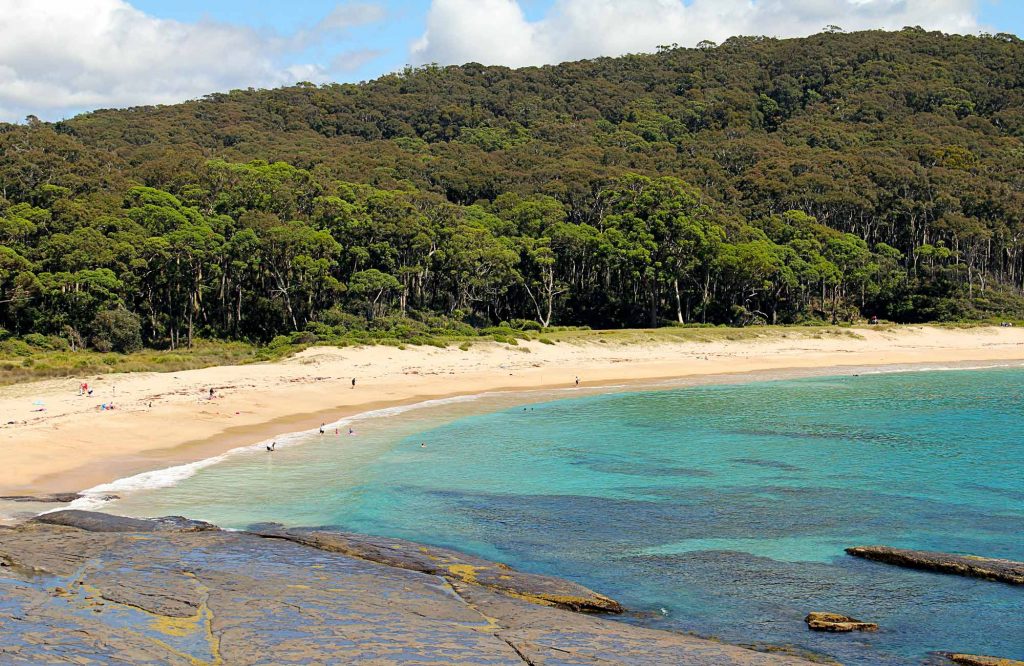
Depot Beach in Murramarang National Park is one of 23 popular campgrounds designated for the new business plan. Photo: NPWS.
He said while it was part of NPWS’ remit to encourage use and access of parks, he questioned why this one aspect of tourism – accessibility – was being used to change policy. “I don’t think it has been established that it is a valid concern.”
Mr Storey said there were many ways people could gain camping experience, including organised camps or camping with friends who could teach them the ropes and lend them gear.
“I am not saying NPWS should not help but how much priority should it get? I don’t think it has been properly investigated.”
He also criticised the lack of detail. The number of camping sites to be allocated to businesses has not been disclosed, and he said it was problematic that there was no discussion of the business model.
Mr Storey said the three-year trial with the option for a three-year extension was very long and there was no talk of any consultation paper. “Get some people with business expertise and do some research on what business models are viable.”
He is concerned by the commercialisation of NSW national parks.
“They are special places owned by the people of NSW and need to be carefully managed so everyone can enjoy them,” Mr Storey said. “Once you have businesses coming in needing to make a profit you complicate things. They have different objectives.
“Once you allow that commercialisation of camping in national parks you are on a greasy slope,” he said. “Where does it stop?”
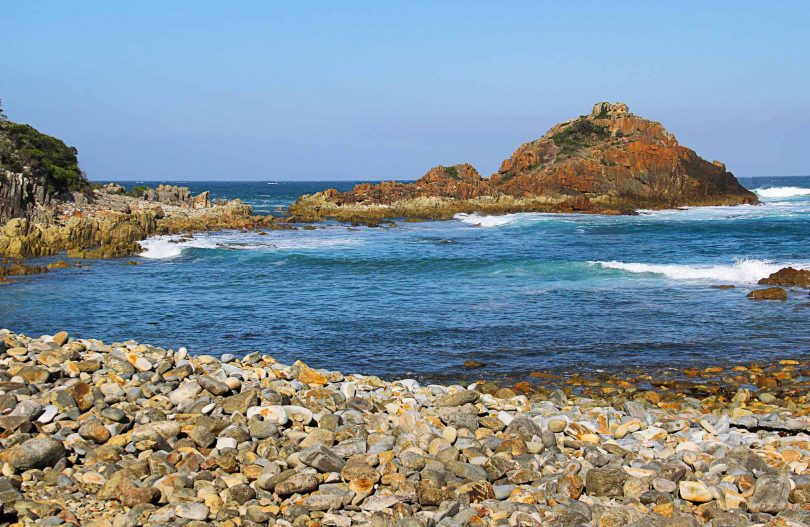
Mimosa Rocks National Park. Photo: John Yurasek, NPWS.
Rather than commercial operators using some of the state’s most beautiful and highly valued public land, Mr Storey said they should use private land.
He sees equity issues around NPWS’ plan to improve accessibility.
“We are going to privilege commercial operators so those sites will be withdrawn from the general public and then offer a premium service to those who can afford it,” Mr Storey said. “How about the people who cannot afford it. That is another issue of accessibility that doesn’t make sense.”
Mr Storey said the NPWS camping sites were already in high demand. If NPWS wanted to improve accessibility it should construct a limited number of new sites for allocation to commercial operators so that existing sites weren’t taken away from public use.
He said if NPWS was really interested in increasing accessibility it would be good if it released its long-term plans for expanding or increasing the number of camping grounds to meet future demand.
“This plan really lacks detail about what NPWS is trying to do in relation to accessibility. It doesn’t seem to fit in with any policy frameworks or recent consultations around camping in national parks.”







